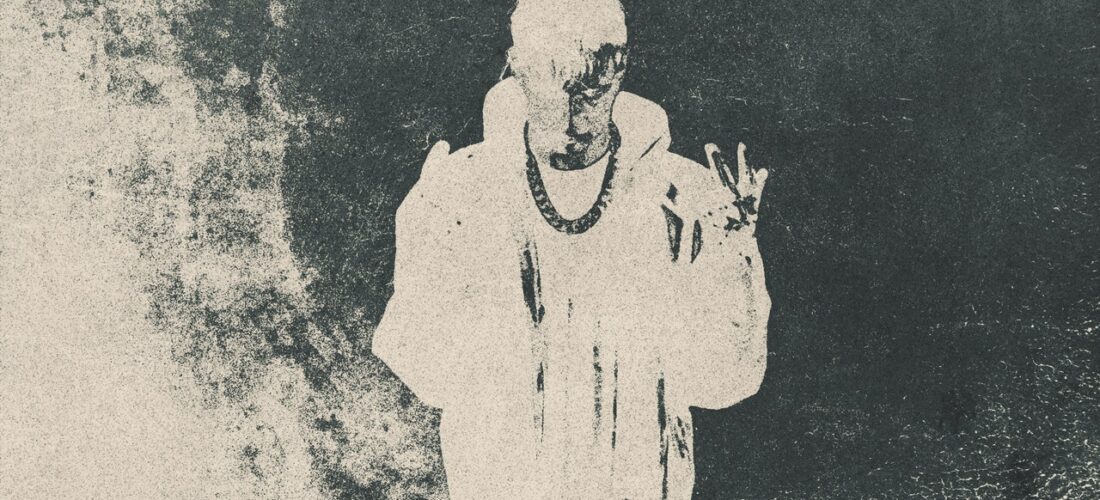Let’s start with the Edgar mullet: the haircut that has kids all across Mexico walking into barbershops and demanding the “Peso Pluma.” This is just one of the idiosyncrasies that has made Hassan Emilio Kabande Laija the man of the moment in mainstream Spanish-language music. There is the expensive jewelry and designer clothing—Richard Mille watches, Christian Dior shoes, Maison Margiela jackets—that he regularly namechecks in his songs. There is his lanky physique. And then there is his voice: a scratchy, sometimes grating croak or rasp, depending on his mood. That singular voice sings about lots of things: popping bottles of Dom, carrying bricks of coke, assassinating enemies, hooking up with Russian models. You know, an average Tuesday.
Over the last year, the 25-year-old Mexican singer of Lebanese descent has racked up a list of chart and streaming records as long as a CVS receipt, ushering música mexicana to unprecedented commercial heights. ÉXODO, his fourth studio album, is a victory lap of sorts; the LP celebrates how far the movement has come, with Pluma taking homies, cousins, and fellow trailblazers like Natanael Cano, Junior H, Tito Double P, and Eslabon Armado along for the ride. But the album is also a bona fide attempt to cement Peso Pluma’s versatility—and the longevity it promises—in the industry. ÉXODO confirms he’s one of the most charismatic corrido performers of our time, but as for his ability to shapeshift across genres and flows, Peso Pluma the pop star still has some convincing to do.
The crackle of Peso’s voice is the molten core of ÉXODO. Its peculiarity is a blessing, but in some moments, it can also be a curse. His coarse growl is especially effective on the bare-knuckle norteño “La People II,” which seems to be written from the perspective of Joel Enrique “El 19” Sandoval Romero, a sicario and security chief for the Sinaloa cartel who was arrested by the Mexican government in 2014. Pluma and his guests snarl viciously as they recount tales of battling police officers, the national guard, and the military to protect their bosses (ostensibly Ovidio Guzmán López, a high-ranking leader of the Sinaloa cartel and the son of El Chapo) from capture. Peso assumes the voice of El 19, asking his associates to take care of his “land, his family, and his parents,” presumably while he’s locked up.
The debate about artists’ roles in glamorizing narco culture didn’t start with—and won’t end with—Peso Pluma. Too often, narcocorrido stars have become ideological scapegoats for the federal government’s failure to curb violence; other times, artists have denied they have any sociocultural impact at all. The discourse is fraught, but one thing is certain: Pluma excels when he performs the mythos of narco culture, no holds barred. It places him firmly within the genealogy of his forebears, like his late idols Chalino Sánchez and Ariel Camacho, who showed a similar talent for passionate storytelling, even as they romanticized narratives of murder and revenge. La Doble P reimagines that tradition on “Put Em in the Fridge,” a cold corrido-trap beat built on a blaring horn loop. He tries on a squeaky but bellicose cadence for size, bragging with Cardi B about moving kilos and calling on shooters to put their enemies on ice. Cardi’s gift for rapping athletically in both Dominican Spanish and English makes her a natural collaborator here; the pair goes bar for bar in a thrilling, peacocking display. It’s also a sublime example of Pluma’s talent for redefining his musical heritage for the present day.
